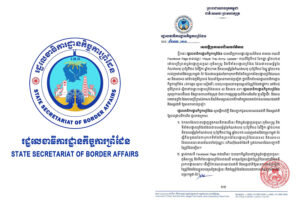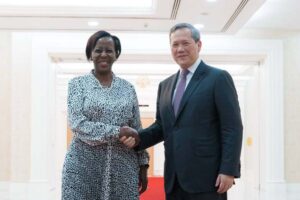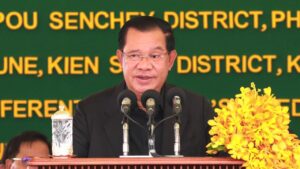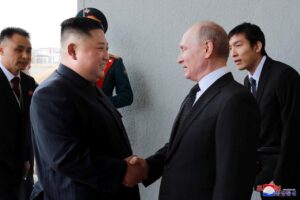Opinion: The cost of Thailand’s lack of policy and leadership (Part 2)
Thailand and Cambodia are locked in another border dispute. X Screengrab
Khmer Times | Thailand’s reckless policies toward its neighbours and lack of clear leadership have severely strained its own international standing and its relations with countries with which it shares a border.
This two-part series examines the consequences for previously good neighbourly relations caused by Thailand’s domestic political complications, most notably the lack of clear policies and leadership.
Thailand’s irresponsible policies and political vacuum
Let’s go back in time to before the killing of an unarmed Cambodian soldier on May 28.
People wondered why that happened, and why at a time when relations between the two countries were excellent?
Most governments derive their popularity from policies that make their citizens richer and happier.
The government constantly strives to ease the burden on the population while creating more opportunities for growth.
In Thailand, the population is experiencing a political vacuum and a lack of leadership.
Why?
The answer is simple. Just ask what policies the Thai government has made recently to benefit the people and economy. People do not have a clue.
Another critical question is, who is holding the power now?
Again, no one can provide an answer.
Although some Thais do not believe that their government and military are attempting to divert attention from the domestic political vacuum, Thailand is currently facing border violence and security issues with Myanmar, Malaysia, and Cambodia. Why is Thailand straining its relations with all its neighbours at once?
Again, nobody has an answer.
This is extremely regrettable. As countries in the region struggle to overcome economic and trade challenges caused by superpower rivalry, unilateralism, and increased attacks on the rules-based international order and multilateralism, each government is striving to keep its friends and market access to navigate this period of extreme uncertainty.
For example, on January 7, Malaysia and Singapore joined forces to create the largest cross-border special economic zone (SEZ) ever established in the region. The two countries signed an agreement to establish an SEZ in the southern Malaysian state of Johor to support investment and liberalise the movement of goods and people between the two countries.
On June 16, Indonesian President Prabowo Subianto told the world that his country was “copying with pride” the good policies that have been implemented by Singapore.
On June 30, Indonesia announced a strategic deregulation initiative to ease import restrictions on 10 commodity groups.
In this moment of extreme uncertainty, countries should be trying to team up, not break up.
Countries are redoubling efforts to promote bilateral and multilateral trade to ensure economic security based on a solid network of interdependence with various partners.
It is most regrettable that Cambodia and Thailand have found themselves in such a situation at a time when ASEAN’s external confidence is reaching its peak.
Thai leadership, or rather, its absence, is leading the country down a path that runs counter to international trends. Thailand is pursuing a policy of threats by cutting ties and interdependence, to the detriment of both parties. In this critical period, sellers will suffer more than buyers as the latter have more options, aside from rare raw materials and technologies, and what Thailand supplies to Cambodia can be easily replaced by other suppliers.
The lack of policy and leadership is costing Thailand dearly.
Thailand deserves a strong government as soon as possible, not to fight Cambodia, but to rebuild ties with its neighbours, restore its international prestige as a guarantor of a rules-based international order, and ultimately restore national confidence so that local and international businesses can thrive.
Domestically, countries need peace, stability, predictability, and trust.
Internationally, countries need a rules-based order, multilateralism, friendship, and cooperation.
Countries should compete to strengthen these elements, not destroy them.
The author is a Phnom Penh-based geopolitical analyst and commentator. The views expressed here are the author’s own







